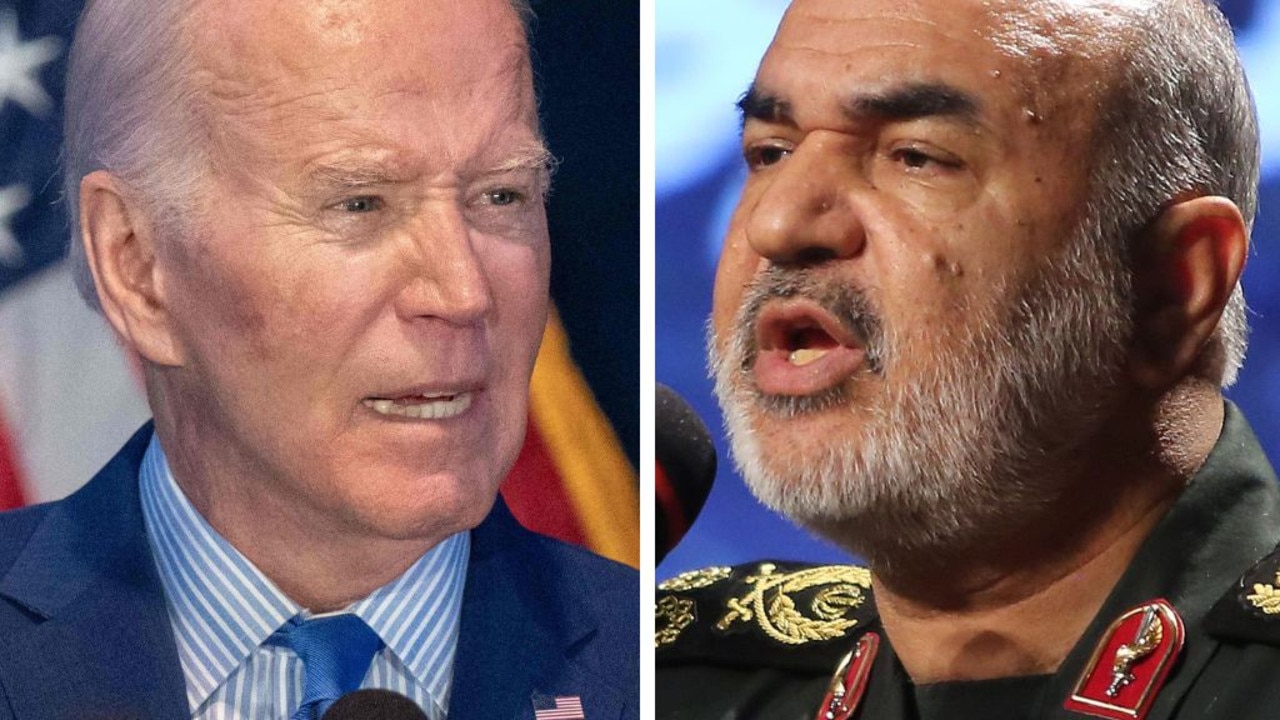[ad_1] A high-ranking military official in charge of Iran’s Islamic Revolutionary Guards Corps has issued a worrying statement as tensions between t
[ad_1]
A high-ranking military official in charge of Iran’s Islamic Revolutionary Guards Corps has issued a worrying statement as tensions between the Middle Eastern superpower and the West continue to mount.
On Wednesday, General Hossein Salami, said threats by American officials “will not go unanswered”, revealing his nation was not eager to begin a war with the West, but was “not afraid”.
“We are not looking for war, but we are not afraid of war,” General Salami said.
Iran has denied any links to an attack that killed three US troops in Jordan and said it was not seeking an “expansion” of conflict in the Middle East.
Regional tensions have intensified since the Israel-Hamas war, drawing in Iran-backed groups in Syria, Iraq, Lebanon and Yemen.
The Islamic republic has previously said it sees a “duty” to support what it calls “resistance groups” in the region but insists they are “independent” in decision and action.
The recent attack in Jordan, attributed to the Iran-backed militia group Hezbollah, has escalated tensions, prompting discussions on American retaliation amongst some of the nation’s most prominent political figures.
Republican presidential candidate Nikki Haley stoked the flames this week in an attempt to steer the spotlight away from Donald Trump’s push to reclaim the presidency. Haley, 52, has pushed for an immediate military response from the US to “hit their leaders”.
“Now is the time to hit their leaders. It’s different. Don’t go and bomb the country,” Ms Haley told Fox News.
“The infrastructure in Iraq and Syria, you start with that first. You do the sanctions, and you take out a couple of their leaders. That’s the way to start. If they’re in their country or you do like Soleimani when they left the country. You figure out where they are. Our Special Operations can do that. And then you take them out.
“That will send a message. We’ve got to do this immediately and make sure that we let them know. For (Joe) Biden to say, oh, you know, they’re not going to do something else, or we’re going to show ‘em.”
The growing violence in multiple parts of the Middle East has raised fears of a broader regional conflict directly involving Iran — a worst-case scenario that Washington is purportedly seeking to avoid.
US and allied forces in Iraq and Syria have been targeted in more than 150 attacks since mid-October, according to the Pentagon, and Washington has carried out retaliatory strikes in both countries.
Terrorist group Hamas said the death of the soldiers shows Washington’s backing for Israel could put it at odds with the whole Muslim world if the Gaza war continues and that it could lead to a “regional explosion”.
Following pressure from Iran, Kataib Hezbollah and other Iran-backed militias in Iraq are set to halt operations against US bases to prevent further escalation.
UK Defence Secretary Grant Shapps has visited Washington to discuss the crisis, including the potential deployment of a British aircraft carrier to the Red Sea as a substitute for the USS Dwight D Eisenhower.
Despite de-escalations, Houthi forces in Yemen have continued to target US naval ships in the Red Sea, claiming self-defence and signalling ongoing threats to international trade and military assets.
The US is currently contemplating a “very consequential” response, with national security officials pointing to the involvement of Iran-backed groups. Meanwhile, the UK and EU are considering naval missions to protect shipping in the Red Sea, highlighting international concern over the situation.
UK Foreign Secretary David Cameron’s discussions in Saudi Arabia and with Yemeni leaders, as well as US Secretary of State Antony Blinken’s planned visit to the region, indicate diplomatic efforts to address the broader regional conflict and its implications for global security.
Cameron’s talks in Saudi Arabia also touched on the Palestinian Authority’s future role, the desire for a two-state solution, and potential recognition of Palestine, suggesting ongoing efforts to address longstanding Middle Eastern conflicts amid current tensions.
US to address problem ‘in a manner of our choosing’
US President Biden has pledged to continue the fight against terrorism and vowed to take action against those responsible for the most recent deaths of US personnel in the region.
“While we are still gathering the facts of this attack, we know it was carried out by radical Iran-backed militant groups operating in Syria and Iraq,” Mr Biden said in a statement earlier this week.
“We will carry on their commitment to fight terrorism. And have no doubt — we will hold all those responsible to account at a time and in a manner of our choosing,” the president added.
US Central Command put the number of wounded from the attack near the Syrian border at 25, and said the identities of those killed will be withheld pending notification of their families.
[ad_2]
Source link



COMMENTS